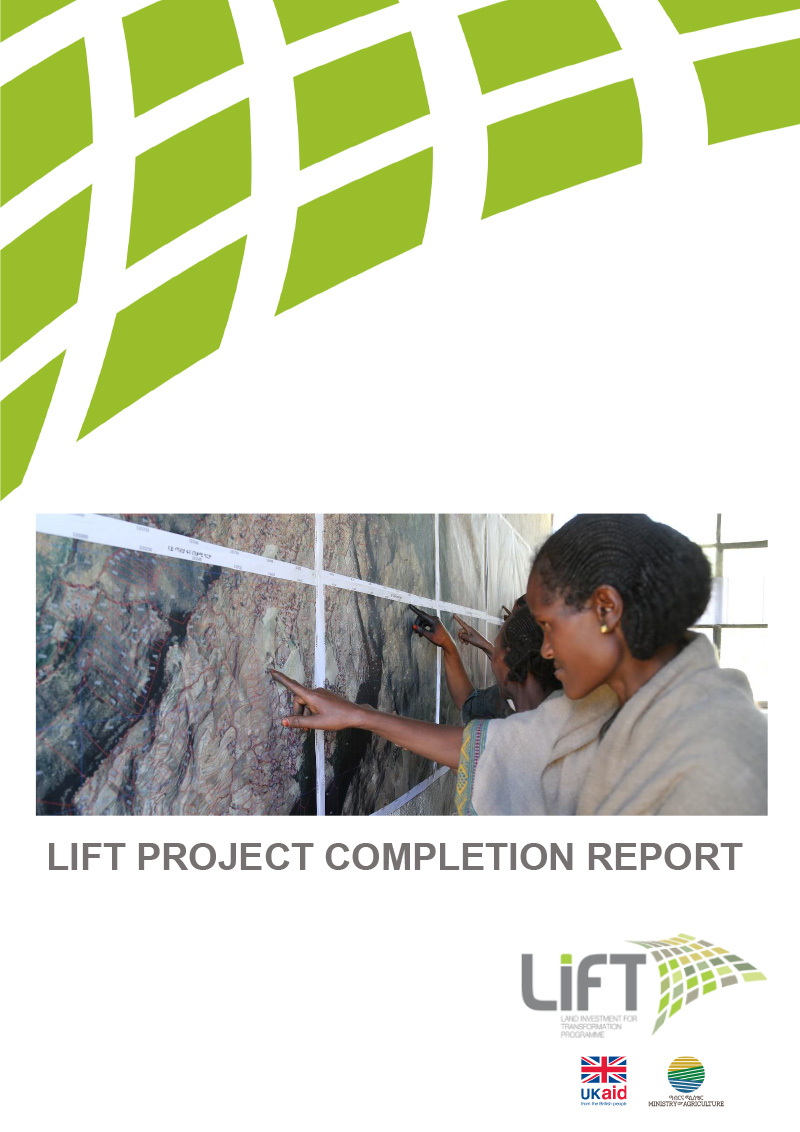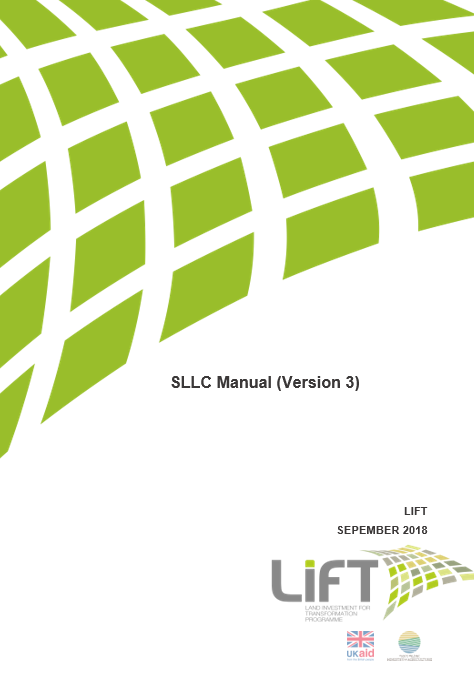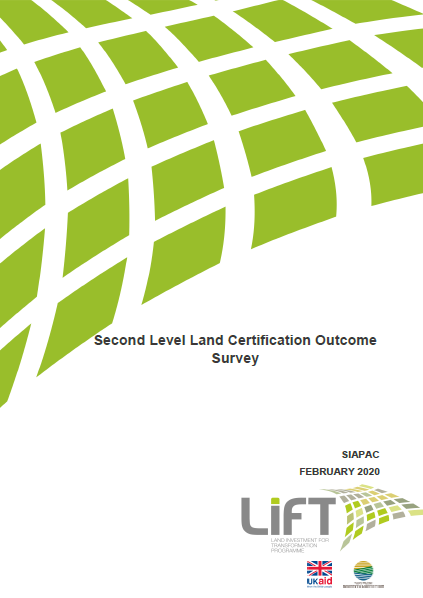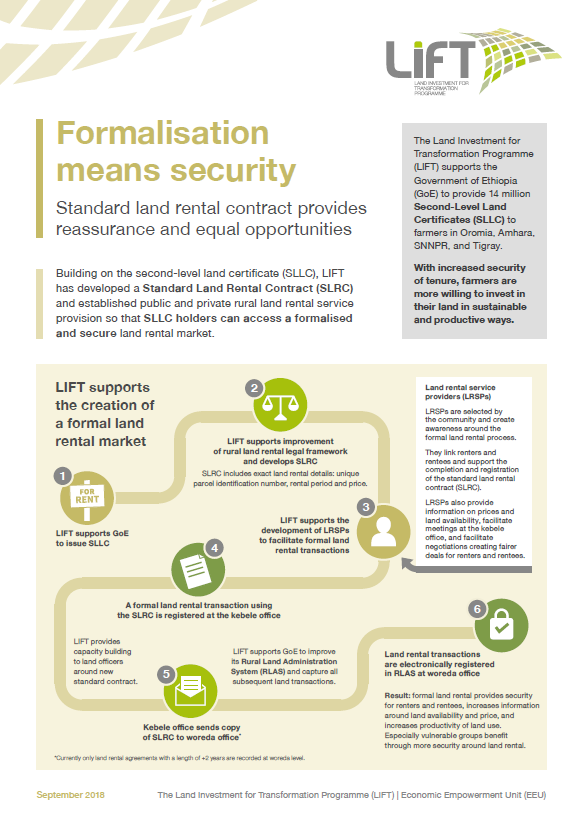Key achievements in numbers
parcels demarcated
certificates approved
certificates available for collection
certificates distributed to landholders
of certificates distributed held by women in joint or sole ownership
parcels restored to 3,075 rightful landholders
woredas with a computerised rural land administration system installed
farmers benefiting from LIFT’s market systems innovations
loans worth £17.3 million disbursed by 139 MFI branches
operational land rental service providers
formal rental agreements facilitated
retailers operational and £503,000 worth of quality inputs provided by input suppliers
Programme themes
Key resources












